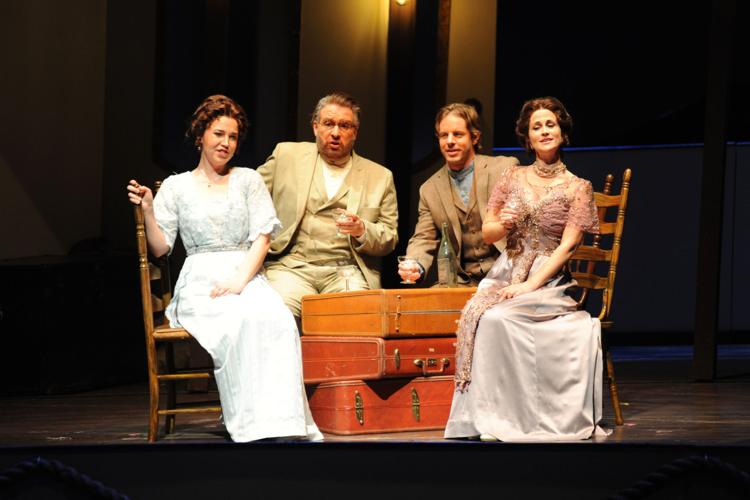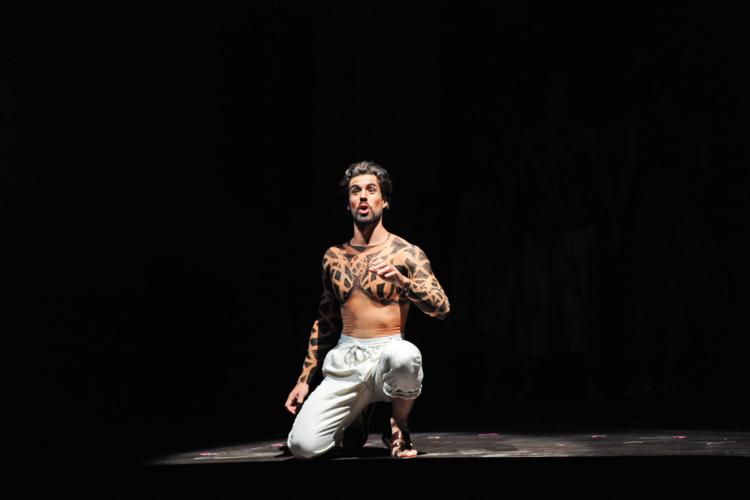Last season, Arizona Opera mounted the first mariachi opera “Cruzar la Cara de la Luna.”
This week it will stage the first all-Spanish opera commissioned by an American company.
But where “Cruzar” had almost musical theater flourishes, “Florencia en el Amazonas” falls more in line with Western operas.
“This has gorgeous, lush orchestration, and beautiful melodies, and a story that follows more abstract and yet is equally relevant and relatable,” said stage director Joshua Borth. “This opera sounds like Puccini, Debussy and Strauss wrote an opera together.”
“Florencia” tells the story of a group of people, including a famous opera singer, traveling by steamboat on the Amazon River. The singer, Florencia Grimaldi, is going home in hopes of reuniting with the love of her life, who she dreams will be smitten all over again when he sees her perform at their hometown theater.
Intertwined dramas unfold — romances are sparked, relationships exposed, all put into context by the narrator Riolobo (sung by baritone Luis Alejandro Orozco).
“Rialobo can intercede for people and talk to the gods. He’s kind of a guide for all of these people on their spiritual journeys,” Orozco said in explaining how his character straddles the real and mystical worlds. “He’s kind of a guardian angel for them.”
As the boat twists in a storm, the passengers discover their connections.
“This piece for me is about connection, about the fact that we are connected to one another,” Borth said. “We are connected to the natural world in ways that we do not even realize.”
“Florencia” is based on the writings of Colombian novelist Gabriel García Márquez, critically acclaimed for popularizing the magic realism literary style. Márquez inserted magical elements and mystical events into otherwise ordinary situations to paint a different picture of reality.
“It really taps into the literary style of Latin America and into, obviously, the Spanish language,” said Bortha, who described Spanish as the ultimate lyrical language.
“Spanish for me, you get the best of both worlds because it is as lyrical as Italian ... but also because there is the Latin fire in the language and the different use of the consonants, you also get the cut and the percussive quality and kind of the visceral nature of German,” he said. “You get all of those colors in the sound that you’re hearing.”
For Orozco, singing in Spanish — one of his two native tongues — is one of the hardest things he does, he said.
“English and Spanish are the two hardest languages to sing in because I bring all my imperfections of speaking it,” said the 31-year-old El Paso, Texas, native who is on the stage throughout the opera. “I find that with this story, language is such a powerful thing.”





